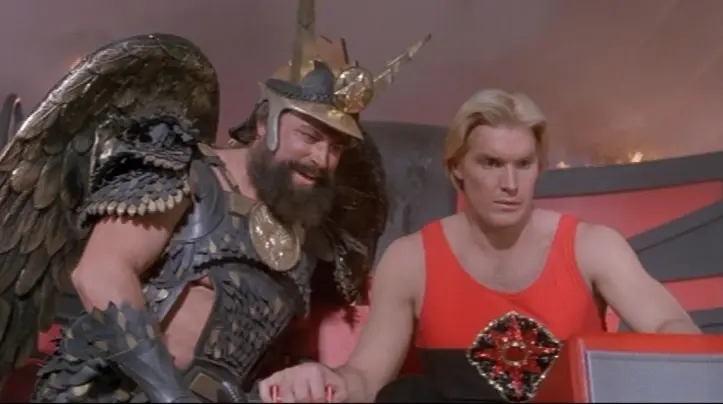Timothy Dalton
- Soames Inscker

- May 19, 2025
- 4 min read
Updated: Dec 16, 2025
“He gave Bond his soul, villains their charm, and heroes their conscience.”

In the ever-evolving world of cinema and television, few actors have exhibited the range, elegance, and quiet intensity of Timothy Dalton. Known to many as the “serious” James Bond, Dalton’s career spans over five decades, traversing Shakespearean theatre, period dramas, action films, and modern genre television. With his commanding presence, classically trained delivery, and fierce commitment to character, Dalton remains one of the most underappreciated yet profoundly capable actors of his generation.
Early Life and Training
Timothy Leonard Dalton Leggett was born in Wales to an English father and an American mother. Raised in Manchester, England, Dalton’s early love of theatre led him to the Royal Academy of Dramatic Art (RADA), followed by work with the prestigious National Youth Theatre. His stage foundation, particularly in Shakespeare, would remain a defining element of his craft.
Dalton turned down a place at the Royal Academy of Music in favour of acting—a choice that set him on a path toward film and theatrical distinction.
Film Debut and Early Career
Dalton made his film debut in The Lion in Winter (1968), opposite Peter O’Toole and Katharine Hepburn, portraying the young Philip II of France. Despite being relatively unknown at the time, Dalton held his own amidst the seasoned cast, earning early recognition.
Throughout the 1970s, he alternated between film and television roles in projects like:
Wuthering Heights (1970), as Heathcliff
Mary, Queen of Scots (1971), opposite Vanessa Redgrave
Cromwell (1970), with Richard Harris and Alec Guinness
He also maintained an active theatre presence, performing with the Royal Shakespeare Company and bringing a brooding magnetism to classic roles like Macbeth and Coriolanus.
James Bond Era (1987–1989)
Though originally approached for the role of Bond in the early 1970s, Dalton felt he was too young to inherit the mantle from Sean Connery and Roger Moore. By the mid-1980s, however, with Moore stepping down, Dalton finally accepted the iconic role.
The Living Daylights (1987)
Dalton’s first outing as 007 was a tonal shift from the tongue-in-cheek style of his predecessor. Rooted in the more grounded espionage of Ian Fleming’s novels, Dalton’s Bond was stoic, emotionally layered, and morally conflicted. The Living Daylights was a critical and commercial success, praised for returning Bond to his Cold War roots.
Licence to Kill (1989)
Dalton’s second Bond film pushed even further into darker territory. A gritty revenge tale involving drug cartels and betrayal, Licence to Kill was ahead of its time—eschewing gadgets for personal stakes. While polarizing upon release, it is now widely re-evaluated as a bold, uncompromising entry in the franchise.
Despite plans for a third film, legal issues stalled production, and by the time the franchise resumed in the mid-90s, Dalton had amicably stepped aside, making way for Pierce Brosnan.
Post-Bond Career
Dalton did not vanish after Bond—on the contrary, he embraced a wide range of roles across genres:
Period and Literary Roles
Jane Eyre (1983): As Edward Rochester in the BBC miniseries, Dalton gave one of his most passionate and nuanced performances.
Scarlett (1994): Played Rhett Butler in this sequel to Gone with the Wind.
Genre Films and Voice Work
The Rocketeer (1991): A swashbuckling villain turn as Neville Sinclair.
Hot Fuzz (2007): A sly, self-referential role as the sinister supermarket manager.
Toy Story 3 & 4: Voiced the theatrical hedgehog, Mr. Pricklepants, to delightful effect.
Television Renaissance
In the 2010s, Dalton enjoyed a career resurgence in prestige and genre television:
Penny Dreadful (2014–2016)
Dalton portrayed Sir Malcolm Murray, an explorer haunted by grief, in Showtime’s Gothic horror series. His gravitas brought emotional weight to the ensemble cast, balancing horror with humanity.
Doom Patrol (2019–2021)
In this quirky DC Comics adaptation, Dalton played Dr. Niles Caulder (The Chief), a morally ambiguous genius. Once again, Dalton anchored the absurd with dignity, proving his chameleon-like ability to elevate unconventional material.
Acting Style and Legacy
Timothy Dalton’s signature is his commitment to truth, whether he's playing a tortured Victorian gentleman, a ruthless spy, or a flamboyant villain. Often described as intense, he avoids theatrics in favour of psychological realism.
Critics have sometimes misread his gravitas as stiffness, but fans and scholars increasingly appreciate his nuance. His Bond, long overshadowed by flashier iterations, is now hailed as a blueprint for the more grounded portrayals by Daniel Craig.
Dalton’s versatility, from Shakespeare to sci-fi, comedy to drama, is a testament to both his range and integrity. Unlike many actors of his stature, he never chased stardom; instead, he chose roles that intrigued him, even at the cost of mass visibility.
Personal Life
Dalton has kept his personal life largely private, avoiding the Hollywood limelight. He has one son and was previously in a long-term relationship with Vanessa Redgrave during the 1970s.
Known for his humility and professionalism, Dalton is regarded by colleagues as a thoughtful and generous performer, rarely seeking accolades but consistently earning respect.
Conclusion
Timothy Dalton’s career defies easy categorization. A leading man who never sought celebrity, a Shakespearean who excelled in genre fiction, and a Bond who helped redefine the role—he remains a singular figure in modern acting.
Whether brooding in Gothic corridors or exchanging laser fire in outer space, Dalton brings authenticity and gravitas to every role. In an age where spectacle often trumps substance, his legacy stands as a quiet rebuke—and a reminder of the enduring power of craft.
“He gave Bond his soul, villains their charm, and heroes their conscience.”





